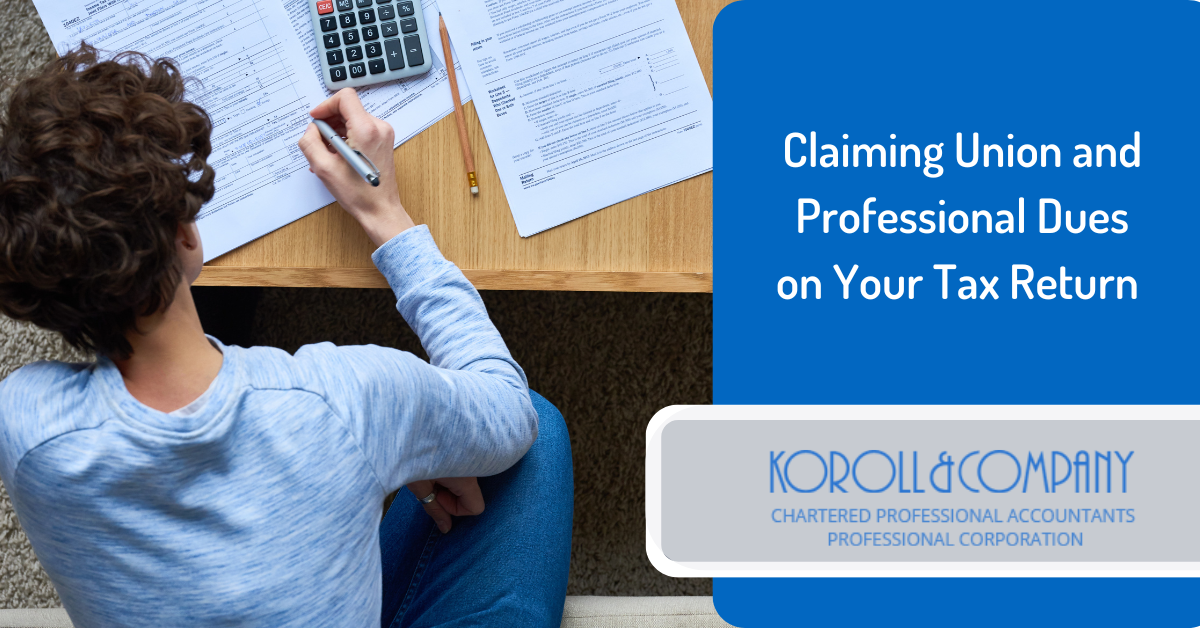 The Canadian tax system can be confusing, especially when most taxpayers only deal with it once a year when they complete and file their annual tax returns. Individual Income Tax Returns include eight pages along with multiple income inclusions, deductions, and credits. And that’s just the beginning.
The Canadian tax system can be confusing, especially when most taxpayers only deal with it once a year when they complete and file their annual tax returns. Individual Income Tax Returns include eight pages along with multiple income inclusions, deductions, and credits. And that’s just the beginning.
The tax return package also includes several additional schedules that need to be completed to claim deductions or credits.
All of this can lead to taxpayers missing out on valuable deduction and credit claims that they could be eligible for.
One commonly overlooked claim is amounts paid for annual union, professional, or similar dues. According to the Canada.ca website, this includes:
- annual dues for membership in a trade union or an association of public servants
- professional board dues required under provincial or territorial law
- professional or malpractice liability insurance premiums or professional membership dues required to keep a professional status recognized by law
- parity or advisory committee (or similar body) dues required under provincial or territorial law
If certain requirements are met, the full amount for these dues can be fully deducted from your income. This means that any income used to pay these dues is not subject to taxation.
Unlike other business-related costs, the deduction for union and professional dues can be easily missed. That’s because it isn’t listed on the forms used by professionals and self-employed taxpayers to claim business expenses. Instead, dues are claimed on Line 21200 of the T1 annual return.
To qualify for the deduction, the dues paid must be essential for maintaining or obtaining professional standing and there must be a connection between the association to which the dues are paid and employment.
In addition, not all costs associated with annual membership fees are deductible. The CRA's policy does not include certain fees such as:
- Initiation fees
- Licenses
- Special assessments
- Anything beyond the organization's regular operating costs, such as charges for pension plans, even if they’re listed as dues
- Fees for voluntary associations
In addition, if an employer covers an employee's professional dues as part of their benefits package and it is not taxed as a benefit on their T4, the employee cannot claim a deduction for those costs. In the case where the employee has a taxable benefit, they can claim eligible dues or fees paid as a deduction on Line 21200 of their tax return.
Professional and union dues are just one of the many available deductions and credits available to Canadian taxpayers. Although it can be easy to miss certain claims, taking advantage of them can result in significant savings.
For help claiming professional and union dues, along with other deductions and credits, contact us today. Our team of professionals is here to provide advice and help optimize your after tax position.






